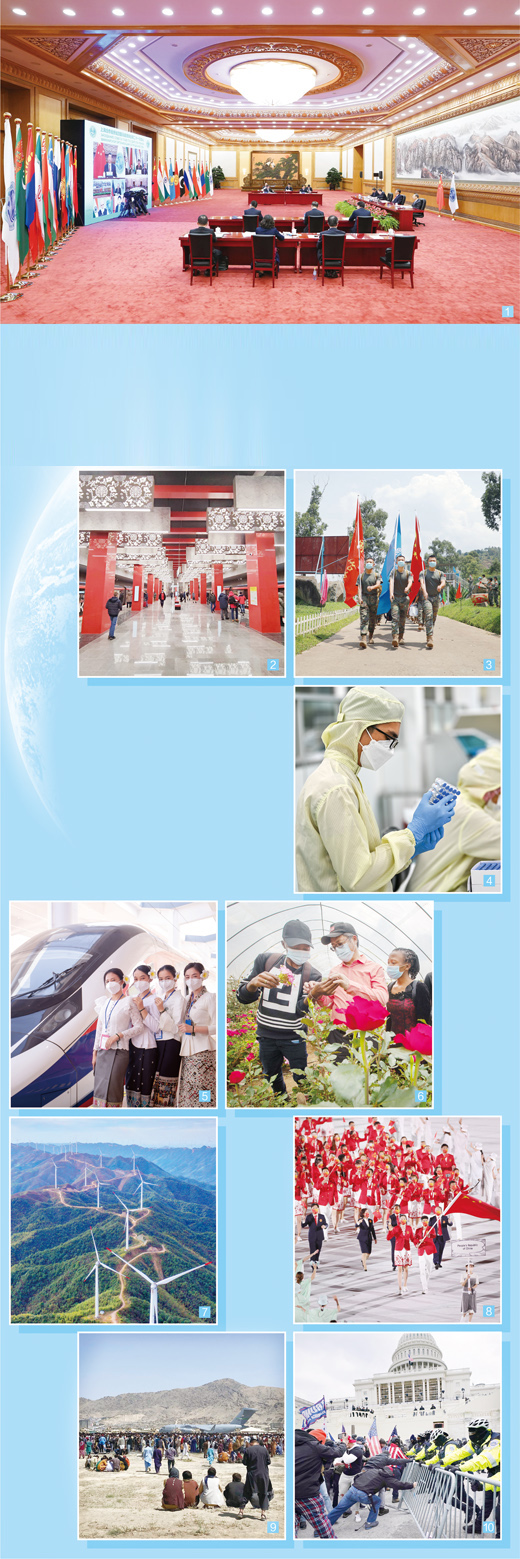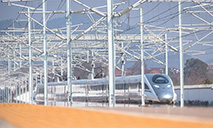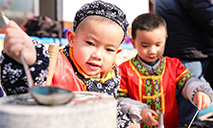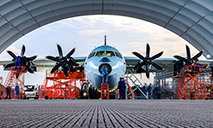People’s Daily’s top 10 world news events in 2021

① Chinese President Xi Jinping attends the 21st meeting of the Council of Heads of State of the Shanghai Cooperation Organization (SCO) in Beijing via video link and delivers an important speech, on Sept. 17, 2021. (Xinhua/Shen Hong)
② A ring line of a subway in Moscow, Russia, which was built by a Chinese company, opens up to traffic on Dec. 7, 2021. Photo shows the Michulin Street Station of the subway. (People’s Daily/Yu Hongjian)
③ A group of soldiers of the 25th Chinese peacekeeping engineering contingent arrive at the Democratic Republic of Congo, Oct. 2, 2021. (Photo/Xinhua)
④ A worker at a Malaysian pharmaceutical company packs Chinese vaccines on Oct. 5, 2021. (Xinhua/Zhu Wei)
⑤ Staff members pose for photos beside the Lane Xang bullet train of the China-Laos Railway at the Vientiane railway station in Vientiane, capital of Laos, Dec. 2, 2021. (Photo/Xinhua)
⑥ Chinese experts introduce planting technologies to students of Egerton University in Nakuru, Kenya, June 25, 2021. (Xinhua/Zhang Yu)
⑦ Photo shows a wind power project located in Taihe county, Ji’an city, east China’s Jiangxi Province. (Photo/cpanet.cn)
⑧ Chinese athletes attend the opening ceremony of the Tokyo Olympic Games, July 23, 2021. (Photo/cpanet.cn)
⑨ The Kabul International Airport in Afghanistan is left in chaos when American troops withdraw from the country. The U.S. announced that it had completed its withdrawal from Afghanistan. (Xinhua/Zheng Huansong)
⑩ Supporters of then U.S. President Donald Trump storm the Capitol building in Washington, D.C., Jan. 6, 2021. (Xinhua)
Editor’s Note: During the past year, the world has witnessed a persistent and unchecked pandemic that has accelerated changes unseen in a century, having brought about a period of turbulence and transformation globally.
Standing at this crossroads, we might ask ourselves a question upon reflecting on our past and looking forwards to our shared future: Are we going to act for the common well-being of humanity to enhance solidarity and cooperation, advocate openness and win-win results, and promote equality and respect, or revert to a Cold War mentality to further deepen divisions and antagonisms, stoking confrontation between different blocs? The tug of war between these two overarching trends will shape the future of humanity and our planet in a profound way for years to come.
Over the past year, under the strong leadership of the Communist Party of China (CPC) Central Committee with Comrade Xi Jinping at its core, China’s diplomacy has maintained a clear theme: to serve national rejuvenation and promote human progress.
1. China celebrates 100th anniversary of founding of CPC
China held a grand gathering on July 1, 2021 to mark the 100th anniversary of the founding of the CPC in Beijing. Xi Jinping, general secretary of the CPC Central Committee, Chinese president and chairman of the Central Military Commission delivered an important speech. On July 6, Xi attended the CPC and World Political Parties Summit via video link in Beijing and delivered a keynote address. From Nov. 8 to 11, the sixth plenary session of the 19th CPC Central Committee was held in Beijing, during which the Resolution of the CPC Central Committee on the Major Achievements and Historical Experience of the Party over the Past Century was passed.
More than 600 political parties and organizations from over 170 countries sent 1500-plus congratulatory messages and letters on the CPC's centenary, conveying their goodwill and best wishes. The international community also spoke highly of the 100-year glorious history and great achievements of the CPC, and believes that the CPC will continue making greater and newer contributions to the progress of human civilization and the peaceful development of the world on a new journey.
2. China maintains frequent activities for head-of-state “cloud diplomacy,” writes new chapter of major-country diplomacy with Chinese characteristics
This year, Chinese President Xi Jinping had four telephone talks and video meetings with his Russian counterpart Vladimir Putin. On June 28, the two heads of state announced the Extension of China-Russia Treaty of Good-Neighborliness and Friendly Cooperation, elevating the Russia-China comprehensive strategic partnership of coordination for a new era to a higher level.
This year, President Xi Jinping conducted two telephone conservations with U.S. President Joe Biden at the latter’s invitation. On Nov. 16, the two heads of state held a meeting via video link. Xi said China and the U.S. should respect each other, coexist in peace, and pursue win-win cooperation, charting the right course for the healthy and stable development of the China-U.S. relationship. On Nov. 22, Xi attended and presided over the ASEAN-China Special Summit to Commemorate the 30th Anniversary of ASEAN-China Dialogue Relations via video link. At the meeting, China and ASEAN officially elevated their relations to a comprehensive strategic partnership.
In 2021, President Xi conducted frequent head-of-state diplomacy, comprehensively promoting friendly cooperation between China and countries around the world and deepening the global partnership network featuring equality, openness, and cooperation. The President also comprehensively articulated China’s proposals and solutions in an in-depth manner regarding advocating multilateralism, fighting against COVID through joint efforts, reinforcing global economic recovery, and coping with climate change. He demonstrated his profound insights as the leader of a major country and party, as well as his aspiration to build a better future for mankind.
3. China celebrates 50th anniversary of restoring lawful UN seat
On Oct. 25, Chinese President Xi Jinping delivered an important speech at a commemorative meeting marking the 50th anniversary of the restoration of the People's Republic of China's lawful seat in the UN. He stressed that China will stay committed to the path of peaceful development, reform and opening-up and multilateralism, calling on countries to advocate peace, development, equity, justice, democracy and freedom, which are the common values of humanity, practice true multilateralism and jointly build a community with a shared future for mankind.
In 2021, President Xi attended the World Economic Forum (WEF) Virtual Event of the Davos Agenda and delivered a special speech. He also attended other meetings, including an informal leaders' meeting of the Asia-Pacific Economic Cooperation (APEC) forum, the General Debate of the 76th Session of the United Nations General Assembly, the 21st meeting of the Council of Heads of State of the Shanghai Cooperation Organization (SCO), the 13th BRICS Summit, and the 16th Group of 20 (G20) Leaders' Summit, among others.
The President raised important proposals regarding safeguarding and practicing true multilateralism on multiple international occasions, stressed safeguarding the international system with the UN at the core, the international order with international law as its foundation, and the basic norms governing international relations underpinned by the purposes and principles of the UN Charter. He also firmly opposed unilateralism, protectionism, hegemonism, and power politics, promoting the global governance system to develop in a fairer and more reasonable direction. The important speeches by Xi aroused widespread resonance in the international community.
4. COVID-19 pandemic still impacts global recovery
In 2021, the global spread of COVID-19 posed a grave threat to people’s health. The worldwide tally of confirmed cases has now exceeded 280 million and with over 5.4 million people having been killed by the disease. The International Monetary Fund (IMF) projected in October that the global economy would grow by 5.9 percent for the year. The world was faced with challenges such as a supply chain crisis, supply shortages, rising energy prices, global inflation, and a dangerous divergence in economic recovery.
While trying to overcome its own difficulties, China provided a total of 2 billion doses of vaccines in the fight against COVID-19 to more than 120 countries and international organizations around the world, accounting for one-third of the total number of doses administered outside of China. China has become the biggest provider of outbound vaccines.
5. BRI projects progress steadily, help countries involved advance economic development, improve people’s well-being
A large batch of high-standard and sustainable projects under the Belt and Road Initiative (BRI) that concern people’s well-being witnessed new progress in 2021.
Under the BRI framework, the Zhanatas 100 MW wind power project in Kazakhstan was fully connected to the country’s power grid; the track-laying work of a cross-river railway bridge linking Tongjiang city in northeast China’s Heilongjiang Province with Nizhneleninskoye in Russia was completed; the main structure of a major stadium for the 2022 Qatar FIFA World Cup was completed; the cornerstone was laid for the Hungarian section of the Budapest–Belgrade railway connecting the capital cities of Hungary and Serbia; the Karot Hydropower Project in Pakistan successfully closed the gates of diversion tunnels and started reservoir impoundment; and, the second phase of the China-aided rural water supply project in Cambodia was fully delivered. The China-Laos Railway was officially opened in December, and Chinese President Xi and his counterpart in Laos together witnessed the historic occasion.
During the first 10 months of 2021, the trade volume of goods between China and its BRI partners bucked the trend and increased by 23 percent.
On Nov. 19, Xi attended and addressed the third symposium on the development of the BRI, making major deployments and setting out clear requirements for the continued and high-quality development of Belt and Road cooperation, and providing fundamental guidelines for the joint construction of the Belt and Road in the new era.
Since the BRI was proposed eight years ago, China has signed more than 200 cooperation documents for the joint construction of the Belt and Road with 145 countries and 32 international organizations.
6. China enters new stage of cooperation with Africa, works closely with the continent to implement nine programs
The Eighth Ministerial Conference of the Forum on China-Africa Cooperation (FOCAC) was held in Dakar, capital of Senegal on Nov. 29 and 30. Chinese President Xi Jinping attended the opening ceremony and delivered a keynote speech via video link. He summarized the spirit of China-Africa friendship and made proposals on the building of a China-Africa community with a shared future. He announced that China will work closely with African countries to implement nine programs in health, poverty reduction and agricultural development, trade promotion, investment promotion, digital innovation, green development, capacity building, cultural and people-to-people exchanges, and peace and security. The forum marked a new milestone in China-Africa relations and fully indicated China’s sincerity to support Africa’s development and vitalization.
Over the past year, China-Africa trade and investment bucked the trend. The co-construction of the Belt and Road by China and Africa, as well as the Global Development Initiative have been intensively aligned with the African Union’s Agenda 2063, the construction of the African Continental Free Trade Area, and development strategies of African countries. The two sides have established a platform for China-Africa private investment promotion and opened “green lanes” for African agricultural exports to China to accelerate the post-pandemic recovery of Africa.
Besides, they have jointly launched the Initiative on Partnership for Africa's Development, and formulated the China-Africa Partnership Plan on Digital Innovation in Africa, which expanded the scope of China-Africa cooperation.
As China and Africa enter their new stages of development, the advantages of their complementarity have become more obvious and their mutually beneficial cooperation is marked by higher quality, greater impact, and brighter prospects.
7. Global actions on climate, environmental governance become more urgent, more consensus reached to build a community of all life on Earth
Chinese President Xi Jinping attended the Leaders' Climate Summit via video link on April 22, and delivered an important speech, stressing that China must be committed to harmony between man and Nature, green development, systemic governance, a people-centered approach, multilateralism, and the principle of common but differentiated responsibilities.
Xi attended and addressed the Leaders' Summit of the 15th Meeting of the Conference of the Parties to the Convention on Biological Diversity (COP15) by video link on Oct. 12, stressing that people across the world shall take the development of ecological civilization as the guide, make joint efforts to build a community of all life on Earth, and start a new journey of high-quality development for humanity.
The 26th session of the Conference of the Parties (COP26) to the United Nations Framework Convention on Climate Change was held in Glasgow, the UK, from Oct. 31 to Nov. 13, 2021.
Chinese President Xi Jinping on Nov. 1 delivered a written statement to the World Leaders Summit at the COP26, making a three-pronged proposal to address climate challenge and push for economic recovery, including upholding multilateral consensus, focusing on concrete actions, and accelerating the green transition.
The COP26 completed the negotiations on the remaining issues regarding the implementation rules of the Paris Agreement, laying a solid foundation for the full and effective implementation of the Paris Agreement. During the conference, China and the US released the China-US Joint Glasgow Declaration on Enhancing Climate Action in the 2020s, which effectively boosted confidence in joint efforts to address climate change and injected impetus into the success of the conference.
8. Tokyo 2020 Olympic Games held amid COVID-19 pandemic, with new Olympic motto “Faster, Higher, Stronger – Together”
Tokyo 2020, the Games of the XXXII Olympiad, were held in Tokyo, Japan, from July 23 to Aug. 8, 2021. It was the first modern Olympic Games to be postponed. About 11,000 athletes from 205 National Olympic Committees and the International Olympic Committee (IOC) Refugee Olympic Team gathered in Japan for the event. The Chinese delegation, with excellent performances and high-spirited morale, claimed 38 gold medals, 32 silver medals and 18 bronze medals, winning worldwide attention and respect.
Before the opening of Tokyo 2020, the IOC approved the move of adding "together" to the Olympic motto of "faster, higher, stronger" unanimously at the 138th IOC session on July 20, 2021, which demonstrated the need for solidarity in tough times, including during the pandemic.
The Beijing 2022 Olympic and Paralympic Winter Games will be held in February and March 2022. At present, preparation work for the event is in full swing. China is striving to present a streamlined, safe and splendid Olympic Games to the world. The international community generally believes that the Beijing 2022 Olympic and Paralympic Winter Games will, with the participation of all parties, show solidarity and friendship, offer profound inspiration for the joint efforts of mankind to cope with challenges, and promote the sound development of sports around the world.
9. U.S. military withdrawal from Afghanistan leads to chaotic situation, indicating global threats posed by American belligerence
The U.S. announced on Aug. 30 that it had completed its military withdrawal from Afghanistan, which marked an end to the unsuccessful military intervention by Washington and its allies. The flustered evacuation left a chaotic situation behind in the war-torn country, triggering wide criticism from the international community, and even U.S. allies. It also further damaged the international credibility of the U.S.
Over the past 20 years, the U.S. has been forcing its own models on Afghanistan through military intervention under the banner of so-called democracy and human rights, which has gravely destroyed Afghanistan’s sovereignty and territorial integrity, and brought traumas and disasters to the Afghan people.
Over 100,000 civilians lost their lives to the guns and bombs of the U.S. and its allies, and more than 11 million were displaced. The 20-year military intervention has led to a daily loss of $60 million on average, and the number of terrorist groups in Afghanistan surged to more than 20 from a single digit in 2001.
The strategic failure of the White House mirrored how U.S. belligerence has been hurting the world, and once again proved that so-called democratic transformation does not suit realities at all.
10. Capitol attack reveals chaos of American democracy, hurts U.S. image
On Jan. 6, a mob attacked the U.S. Capitol in Washington, D.C. when a joint session of Congress was assembled to count the electoral votes that would formalize the result of the 2020 U.S. presidential election. The incident led to multiple deaths and injuries, and forced the U.S. capital to announce a curfew.
The violent incident was criticized by many political dignitaries, as well as the leaders of a number of international organizations, including the UN. American media called it the first time in modern American history that the country’s power transfer has turned into a real open conflict in the corridors of power in the nation’s capital. They lamented that violence, chaos and vandalism had shaken American democracy to the core, saying that the American political system might have been subject to permanent damage.
The incident fully exposed the chaos of the U.S. political system, and revealed the divide in U.S. political parties and politics, as well as the extreme polarization and divisions in U.S. society. It has not only damaged the image of the U.S., but also triggered reflection in the international community and within the U.S. on the flaws of American democracy.
Photos
Copyright © 2022 People's Daily Online. All Rights Reserved.










